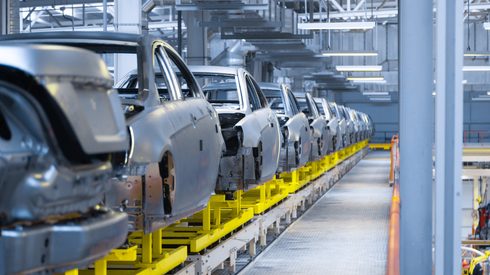Fastmarkets’ price assessment of electrical steel, non-grain oriented, ex-whs Eastern China was $671-721 per tonne on October 11, up by 6.75% from $620-684 per tonne two weeks earlier.
Wugang’s 50WW800 product was heard offered at $721 per tonne, while Shagang’s SG50W800 and Angang’s 50AW800 were offered at $671-692 per tonne in the week to Friday.
Deals for Shagang’s SG50W800 were concluded at 4,750 yuan ($672) per tonne, up by 400 yuan per tonne from 4,350 yuan per tonne on September 27, which was before the Golden Week holiday from October 1-7, while Wugang’s 50WW800 was heard traded at 5,100 yuan per tonne, up by 250-300 yuan per tonne from 4,750-4,800 yuan per tonne on September 27.
Steel mills, including Baogang, Bengang, and Angang, have announced price adjustments for November, with order prices for non-grain oriented electrical steel rising by 400-500 yuan per tonne.
Most mills have welcomed the price hikes, which has helped to raise profits and reduce inventory, according to a trader source.
“Shagang’s 50W800 traded at over 4,800 yuan per tonne, but prices stabilized later this week,” the trader said.
But there are concerns among traders that the higher prices could be outpacing demand, sources told Fastmarkets.
“Purchases are still based on immediate needs,” a trader source said.
“Demand is fairly average right now and prices have increased too much. It’s challenging to place orders at these levels,” a second trader source said.
Fastmarkets’ weekly price assessment for electrical steel, non-grain oriented, cfr India, was $660-670 per tonne on Friday, edging down from $665-700 per tonne on September 27.
Meanwhile, India has launched an anti-dumping investigation into imports of Cold-Rolled Non-Oriented Electrical Steel (CRNO) from China, following complaints from South Korean and Taiwanese steelmakers, according to a notification by India’s Ministry of Commerce and Industry.
Among the complainants, POSCO Maharashtra Steel, which is a wholly owned subsidiary of POSCO Korea, as well as CSCI Steel Corporation, which is a subsidiary of CSC Taiwan, have urged the ministry to probe the alleged dumping of CRNO from China.
A Chinese trader told Fastmarkets that export prices for non-grain oriented electrical steel have surged significantly following a recent increase in domestic prices.
“The price of electrical steel in India was higher than importing from China. They will need to seek another ‘cheap solution.’ Additionally, Chinese steel mills may reconsider their presence in the Indian market due to the challenges of obtaining BIS certification and the ongoing anti-dumping investigation,” the Chinese trader said.
Navigate the complexities of the steel industry and make informed decisions with our global coverage of steel market news, steel price developments, steel market trends, forecasts and analysis. Find out more.






